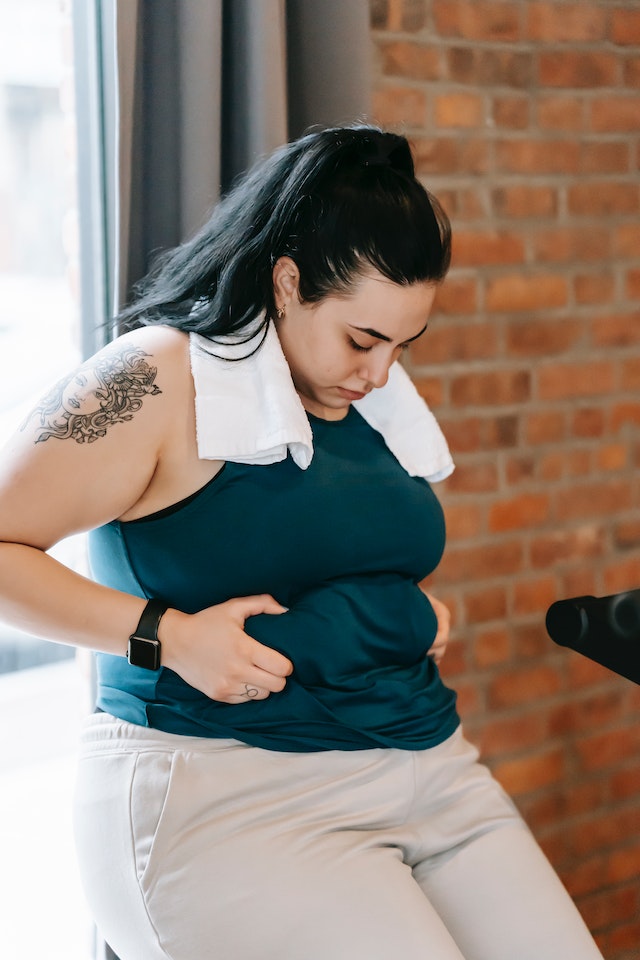Have you ever experienced that feeling of puffiness in your midsection area? This “puffiness” is called bloating. This condition occurs when your stomach starts to feel tight, full, and a little swollen. It could range from slightly uncomfortable to possibly painful. For most women, it could go away after a while. But for some, it could be an ongoing problem.
Bloating is also a common symptom in women during their periods. While there are some medications available to control bloating symptoms, you can alleviate this problem with at-home natural remedies. If you’ve been experiencing this uncomfortable problem in your midsection, here are a few natural remedies for treating it.

Symptoms of a Bloated Stomach
There are various symptoms you must recognize when experiencing a bloated stomach. You must look out for discomfort in your stomach, frequent burping, stomach pain, and gas forming in the stomach. However, some people who start to have bloating have had it severely. That’s when a person starts to experience symptoms such as diarrhea, blood in the stool, vomiting, heartburn, nausea, and even vaginal bleeding. A person could even find themselves losing dangerous amounts of weight.
Natural Remedies for Bloating and Stomach Pain
So if you don’t want to use over-the-counter gas medications or other tablets, there are still plenty of natural remedies for bloating and stomach pain. If you’re struggling with bloating, you can still treat your condition naturally. Some effective home natural remedies to relieve your stomach from feeling so tight include:
- Eating foods full of potassium including spinach, avocado, bananas, sweet potato, etc.
- Adding inflammatory foods to your diet such as green leafy vegetables, blueberries, chia seeds, salmon, walnuts, etc. helps reduce inflammation in the digestive system.
- Adding lemons to your water to aid digestion.
- Peppermint tea helps to aid digestion and reduce bloating by soothing inflammation.
- Avoid carbonated drinks like sodas and sparkling water.
- Avoid salty foods and foods with refined carbs.
What is Period Bloating and How You Can Treat it Naturally
What happens when you have a bloated stomach while on your period? This puffiness around your stomach occurs when your estrogen levels are high and your body starts to retain water. Progesterone hormone starts to experience a fluctuation in levels, making for a slower digestive tract. The sharp drop in progesterone levels doesn’t end up helping bloating symptoms. After you’ve menstruated for a few days, period bloating usually goes away.
So now that you’re aware of it, what can you do to alleviate bloating symptoms naturally? There are several ways you can start to de-bloat your stomach during your period. Instead of going for accessible fast food, try cooking your weeknight meals. Be sure to add in foods with plenty of potassium, healthy fats, and protein. All of these foods promote a good balance of fluids. Also, opt for foods such as lemon juice, ginger, garlic, celery, and watermelons that’ll make you feel lighter on your feet.
In addition to having a healthy diet, it’s also important to get your standard 8 hours of sleep each night. Sleep is often impacted by the pain of menstruation and bloating. So be sure to get adequate amounts of sleep as you can. Also be sure to stay hydrated with H2O and tea, not coffee or alcohol. The latter two will cause you to bloat even more and enhance PMS symptoms.
When to Seek Professional Help from a Doctor
So now that you know how to treat bloating at home, when do you know that you might need to see a doctor? This might be necessary when your bloating symptoms start to be a consistent, severe problem. Consulting your ob-gyn will help you decide if taking a prescription is best for you. Oral contraception could be a good potential option because it not only helps with birth control, but it could help with stabilizing hormones. Some doctors sometimes prescribe their patients going through bloating with a mild diuretic. But don’t take any nonsteroidal anti-inflammatory drugs and diuretics together because that can cause kidney damage.
Bloating could be an uncomfortable balloon feeling in your stomach. But you can alleviate this problem, whether you’re on your period or not, by eating right, drinking plenty of water and tea, and getting adequate amounts of sleep and light exercise. Beat the bloat with natural remedies you can do at home.
Do you have consistent problems with bloating during your period or after? What natural home remedies do you like to use to control this issue? Feel free to share your bloating home remedies in the comments section below. As always, be sure to like or share this post with the next woman you know who has experienced this.

